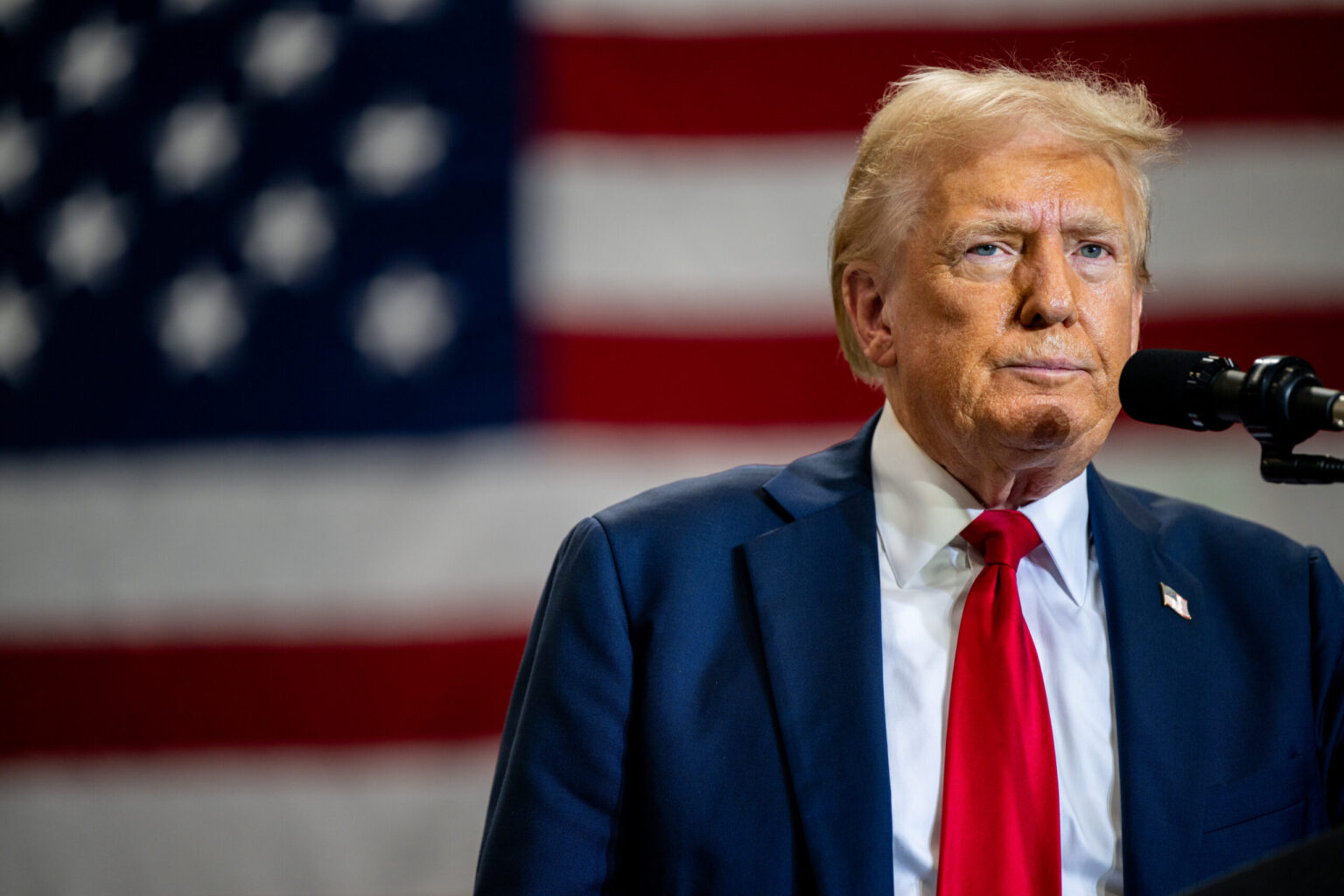15:37
News Story
Trump describes traumatic brain injuries sustained by U.S. troops in Iraq as a ‘headache’
WASHINGTON — Former President Donald Trump said Tuesday that U.S. troops who suffered traumatic brain injuries after Iranian rocket fire in Iraq in 2020 only experienced a “headache,” dismissing the experiences of dozens of American soldiers who were later awarded the Purple Heart.
Trump’s comments came after a reporter in Milwaukee, Wisconsin, asked whether he should “have been tougher on Iran” after that nation launched ballistic missiles on Al-Asad Air Base in western Iraq in January 2020, during Trump’s presidency. A couple thousand U.S. troops remain on an anti-ISIS mission at the Iraqi air base, one of the largest during the U.S. invasion.
“First of all, injured, what does injured mean? Injured means, you mean, because they had a headache because the bombs never hit the fort?” Trump responded.
“If you were a truthful reporter, which you’re not, you would tell the following: None of those very accurate missiles hit our fort. They all hit outside, and there was nobody hurt, other than the sound was loud, and some people said that hurt, and I accept that,” Trump continued.
Trump added that Iran did “a very nice thing” by missing the military base. Photographs taken after the attack show extensive damage on the base.
U.S. troops at the base, that housed roughly 2,000 soldiers at the time, were given notice to shelter in bunkers. The missiles carried warheads weighing well over 1,000 pounds, leaving impact craters that spanned several feet wide, according to CBS News’ “60 Minutes” and The Washington Post.
While no troops were killed in the attack, hundreds were exposed to blast waves, and many were evacuated to Germany for medical care. Weeks later, more than 100 troops were diagnosed with traumatic brain injuries. Dozens were eventually awarded the Purple Heart, including one retired major interviewed by States Newsroom in May.
Soldiers described lasting effects from those injuries as including chronic migraines, vertigo, short-term memory issues and vision impairment.
Trump’s comments Tuesday came as he took questions from the press after delivering wide-ranging remarks at a campaign event at the Discovery World Science Museum on the city’s lakefront.
The reporter did not identify herself before asking her question. Trump’s remarks were recorded in full by the local Fox affiliate and live streamed by the Trump-focused YouTube channel “Right Side Broadcasting Network.”
Details of attack
This is not the first time Trump has downplayed the soldiers’ experiences and injuries stemming from that specific attack.
Iran fired 16 ballistic missiles at the air base and another Iraqi military site between Jan. 7 and 8, 2020. Roughly a dozen landed, according to reports. The attack was in retaliation for a U.S. strike days earlier in Baghdad that killed top Iranian commander Qassem Soleimani.
The 2020 attack on the base has been well documented. Images taken by photographers with National Public Radio and The Washington Post showed damaged buildings on the base. The New York Times and The Associated Press compiled video footage and compared satellite images before and after the attack.
CBS News’ “60 Minutes” aired drone footage of the attack and first-hand accounts from troops who described the experience in a nearly 14-minute news package for the television magazine program.
The National Institutes of Health collected medical data from nearly 40 soldiers for months after the attack and found persistent symptoms following concussions.
Military installations that still house U.S. troops in Iraq have been the target of Iranian attacks following the outbreak of violence on Oct. 7 when the Hamas militant group, one of Iran’s allies, launched a deadly surprise incursion into southern Israel, sparking a year-long war that has also drawn in Iranian-backed Hezbollah militants, according to the Pentagon.
Our stories may be republished online or in print under Creative Commons license CC BY-NC-ND 4.0. We ask that you edit only for style or to shorten, provide proper attribution and link to our website. AP and Getty images may not be republished. Please see our republishing guidelines for use of any other photos and graphics.





